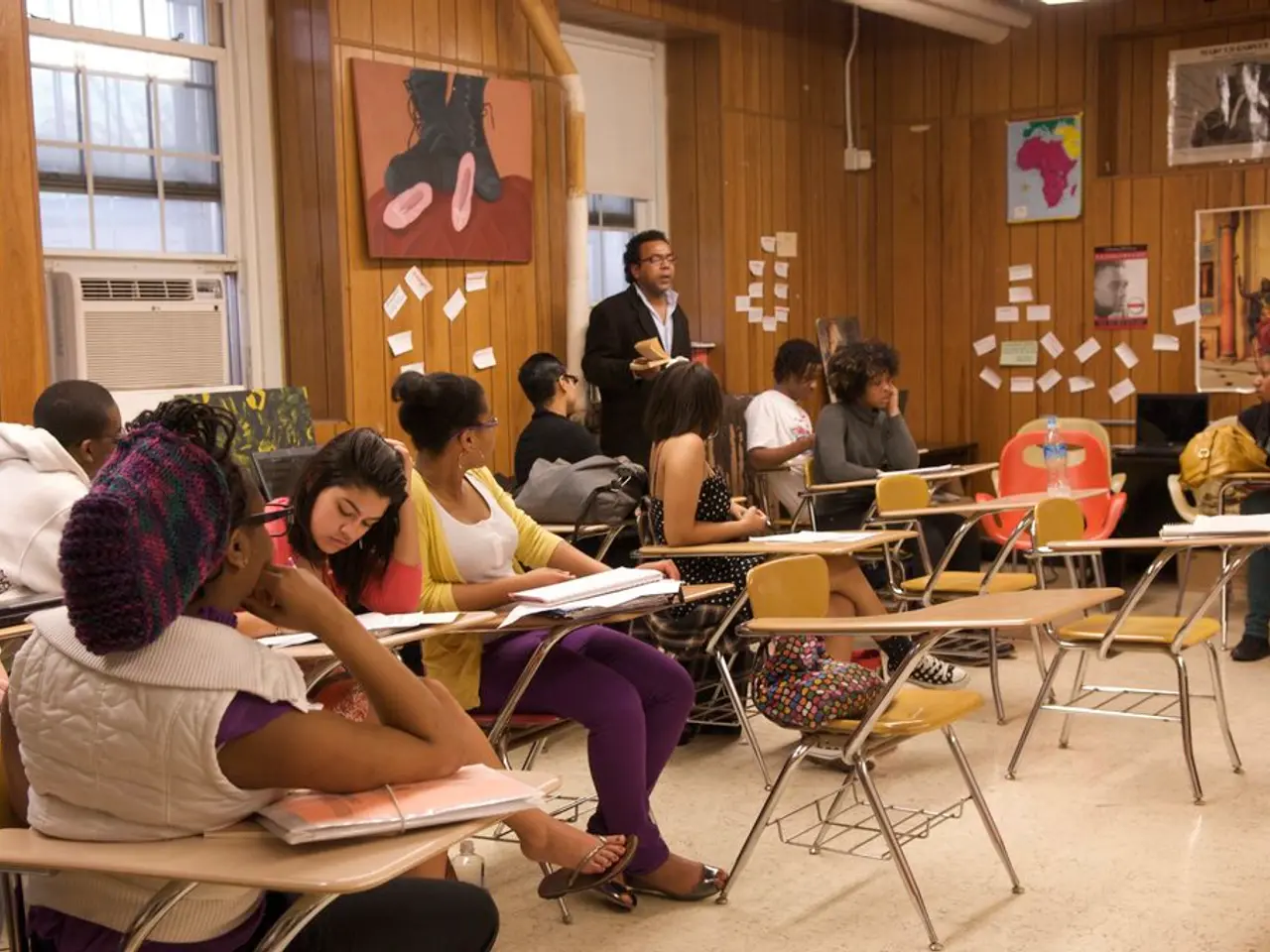Boosting Student Participation via Methods That Foster Comprehension
In today's educational landscape, the focus is shifting from rote memorization to a deeper understanding of concepts. This transformation is being spearheaded by Teaching for Understanding (TfU), an approach that actively engages students in the learning process.
TfU encourages students to construct their knowledge through varied, collaborative, and reflective instructional strategies. The goal is to promote meaningful understanding, rather than simply memorizing facts.
Key practices in TfU include using open-ended questions and formative assessments to gauge understanding continuously and encourage students to explain their thinking and make connections. Instructors also incorporate collaborative activities such as group presentations, role-playing, and discussions, enabling students to articulate and share their interpretations in social contexts.
Differentiated instruction is another crucial aspect of TfU. By adapting teaching models and materials to meet diverse student needs, educators provide multiple entry points to understanding. Clear explanations of procedures and rationales behind learning tasks and classroom processes help students understand the purpose and develop independence in learning.
Metacognitive activities, like think-pair-share and reflective questioning, foster self-monitoring and deeper cognitive processing. A supportive learning environment that honours cultural diversity, encourages positive behaviours, and establishes clear routines helps free cognitive resources for understanding.
When applicable, varied co-teaching models like station teaching and team teaching are used to enhance differentiated support and richer learning experiences. Regular, meaningful feedback through quizzes, whiteboard activities, and peer presentations helps both check and deepen understanding throughout lessons. Incorporating brain breaks and fostering student engagement maintains motivation and concentration, supporting sustained effort toward deep understanding.
Learning journals and exit tickets are effective formative assessment techniques that enable students to reflect on their learning experiences and provide instructors with a snapshot of students' comprehension at the end of class. This approach promotes connections between students and the material, aligning with contemporary educational psychology.
Case studies showcasing successful TfU illustrate effective pedagogical strategies in practice, highlighting the versatility and effectiveness of TfU across different educational settings. Assessing understanding in the classroom is crucial, with effective assessment focusing on students' ability to apply knowledge within various contexts. Formative and performance-based assessments are used to evaluate student comprehension.
Continuous professional development for educators is crucial in sustaining a culture of understanding, providing teachers with innovative strategies to promote understanding and making them better equipped to support their students' learning journeys.
Effective utilization of technology can be summarized in key areas: access to information and resources, opportunities for collaboration and communication, and development of critical thinking skills through problem-solving activities. Future directions for TfU emphasize personalized learning approaches, integrating students' unique background knowledge and interests into the curriculum.
Key principles of TfU include clarity, relevance, and connection to students' prior knowledge. TfU focuses on engaging students in a way that promotes deep comprehension rather than superficial memorization. The role of educational psychology in TfU is to offer insights into how students learn, facilitating the creation of environments that foster deep comprehension.
Teachers play a pivotal role by fostering open dialogues that stimulate curiosity, promoting collaborative discussions and peer interactions, and integrating diverse perspectives and real-world applications into the curriculum. Formative assessment techniques, such as quizzes, discussions, and peer reviews, provide ongoing feedback to educators, fostering deeper understanding of the material. Incorporating diverse assessment strategies, including both formative and performance-based assessments, enhances TfU by creating a more comprehensive view of students' capabilities.
In conclusion, Teaching for Understanding offers a promising approach to education, prioritizing deeper comprehension over rote memorization. By cultivating a culture of understanding in education, we can foster critical thinking, deep engagement with content, and equip students with the skills necessary to apply their knowledge in varied contexts.
- To foster deeper understanding, professional development programs for educators should emphasize the use of e-learning tools and strategies, such as virtual collaborative activities, simulations, and online problem-solving tasks.
- For effective cognitive development, instructional strategies in an e-learning environment should be designed to minimize cognitive load by breaking complex tasks into manageable components and providing clear guidance for each step.
- In the realm of education-and-self-development, embracing Teaching for Understanding (TfU) principles not only promotes deep learning but also prepares students for lifelong learning and self-directed cognitive growth through learning journals, metacognitive activities, and reflective questioning.




